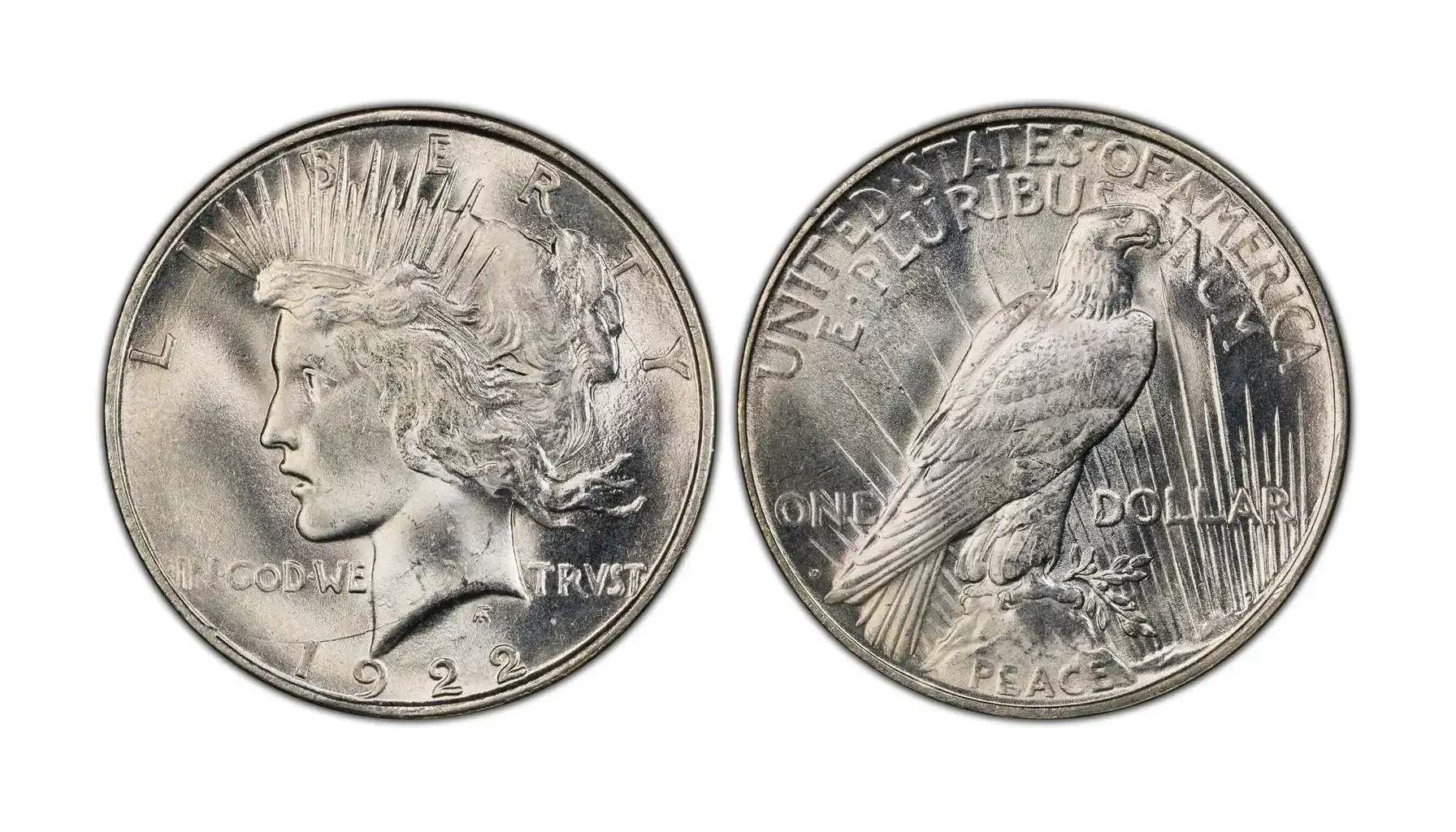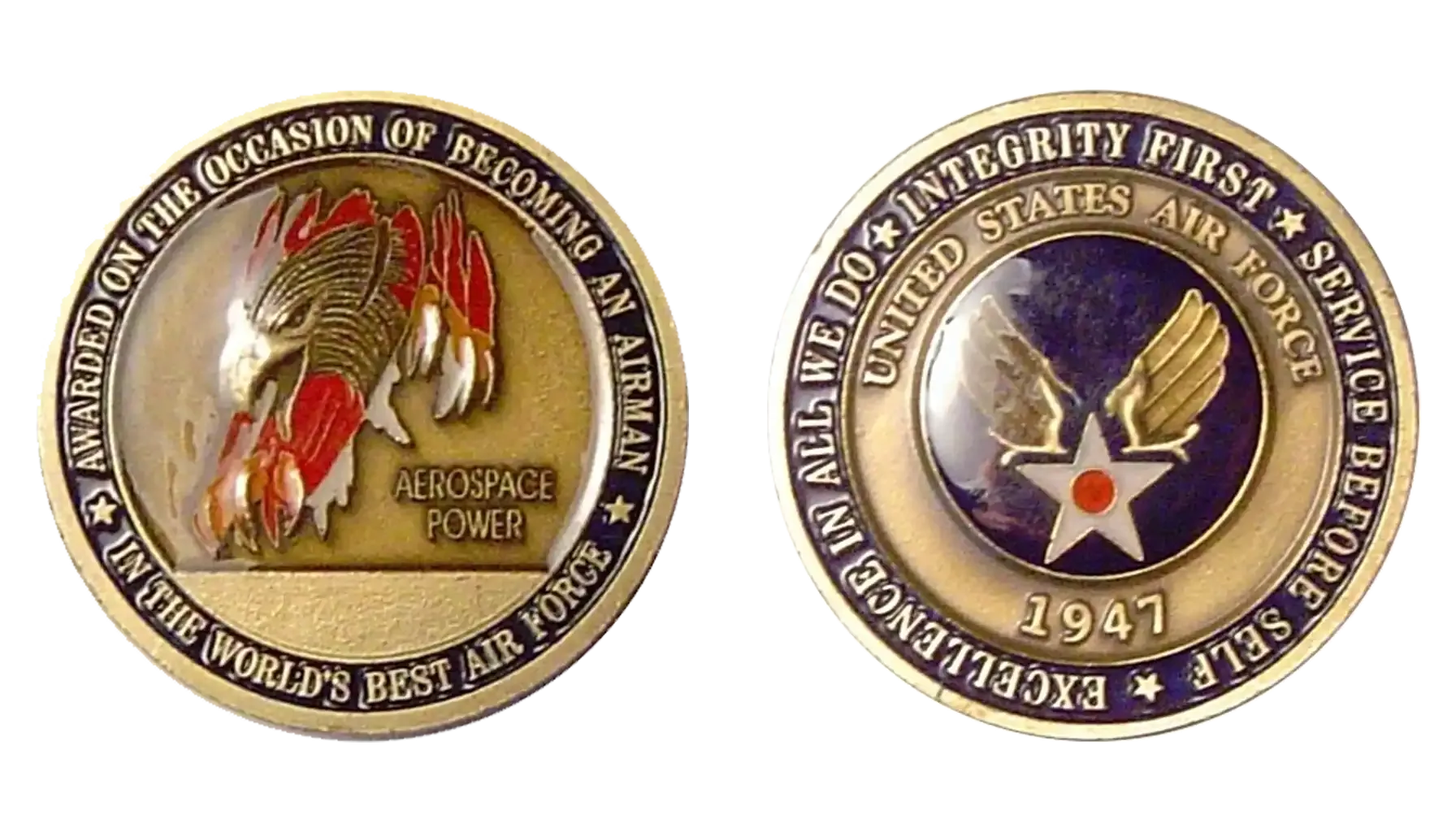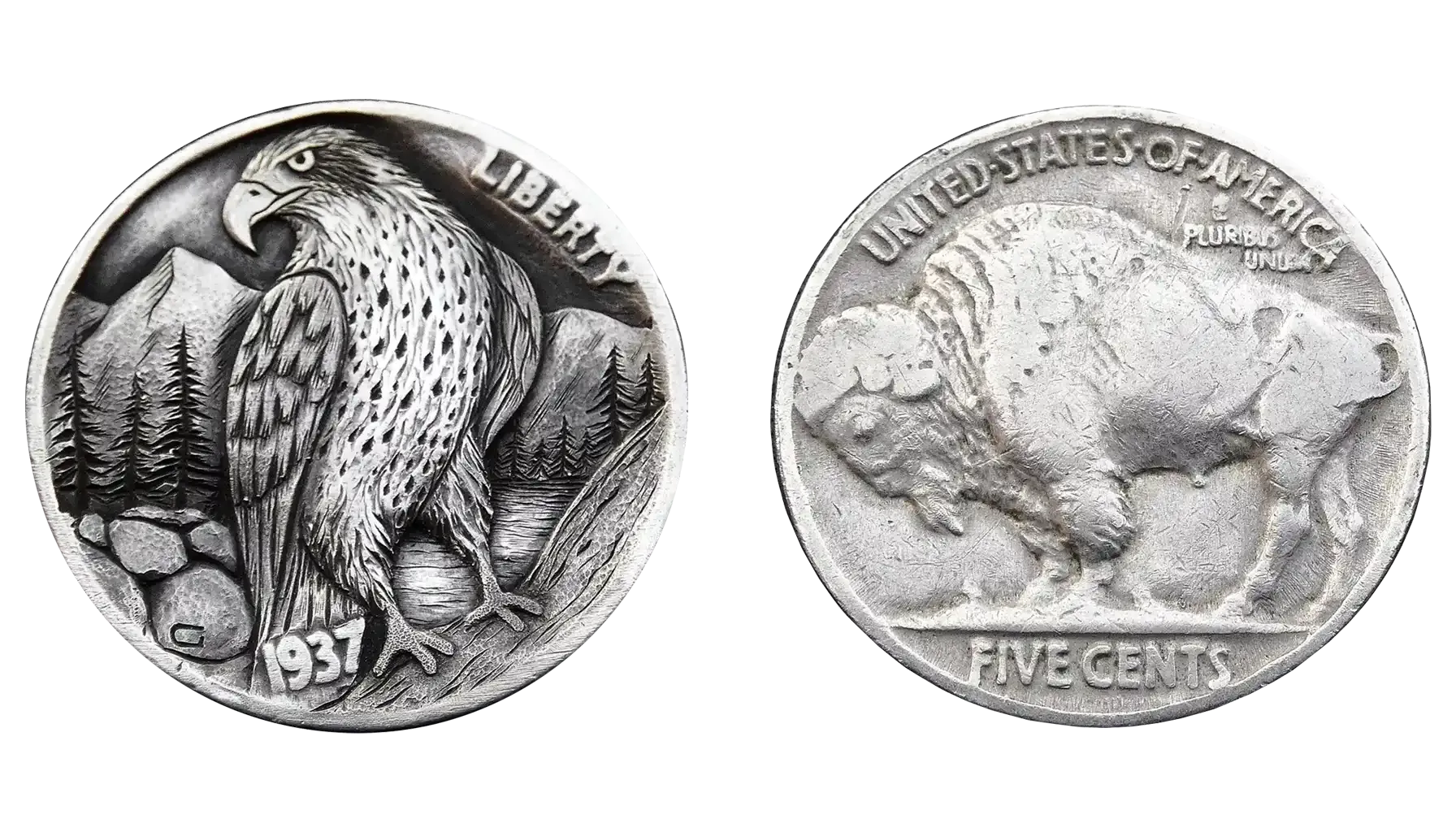Contents:
Despite the fact that one dollar is a common denomination widely utilized in daily transactions, a coin with such a face value has never been a particularly popular choice. Nevertheless, its rare iterations become the welcome residents of any collection, whether assembled by a professional numismatist or an enthusiast alike.
But how can one recognize rare $1 coins worth money? Which tools to employ so as to check coin value on the spot? Knowing how to detect these precious discoveries could transform spare change into a tiny fortune, so keep reading our material and let us become professionals together.
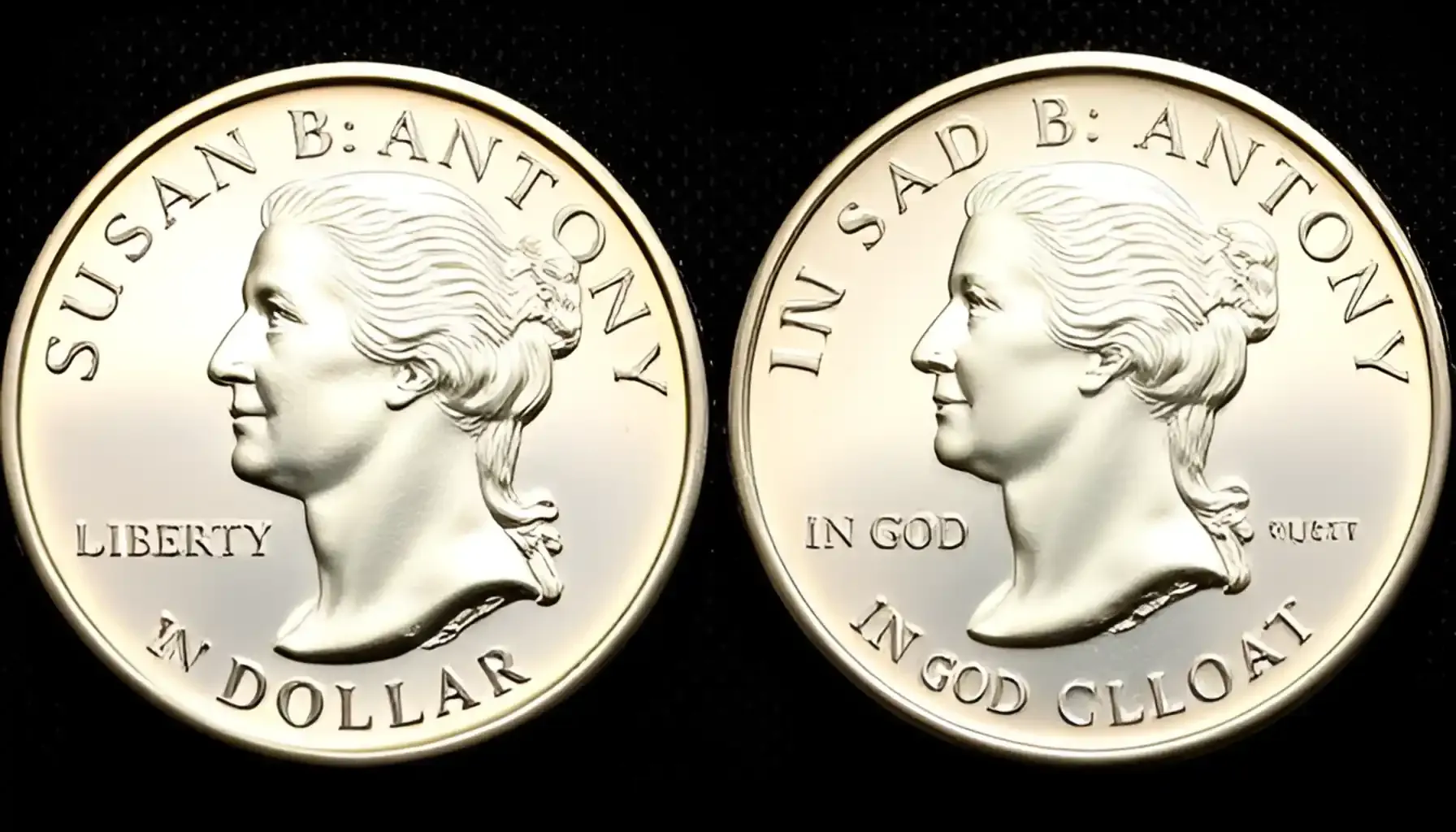
How Rare Is a 1 Dollar Coin?
A quick answer: Are $1 coins worth anything? Are 1 dollar coins rare? In general, these are not unique and highly sought-after, though particular instances can be of interest to coin lovers.
A long answer: Although there are many different one-dollar coins in circulation, a few of them are genuinely uncommon. Due to their mass production, the majority of $1 coins, including those from the Presidential or Sacagawea series, were comparatively widespread. Nevertheless, some of the instances can be easily considered rare $1 coins, and these basically include distinctive misprints or the 2000 Sacagawea dollar known as "Cheerios."
Types of Valuable One Dollar Coins
Not every one dollar unit is made equal. The most valuable dollar coins are a bit different, for they appear to be surrounded by peculiar circumstances, a unique aura, minting deviations, and the like. So, here is the list of the main categories of rare 1 dollar coins to look for.
Historical Coins
Flowing Hair Dollar (1794–1795)
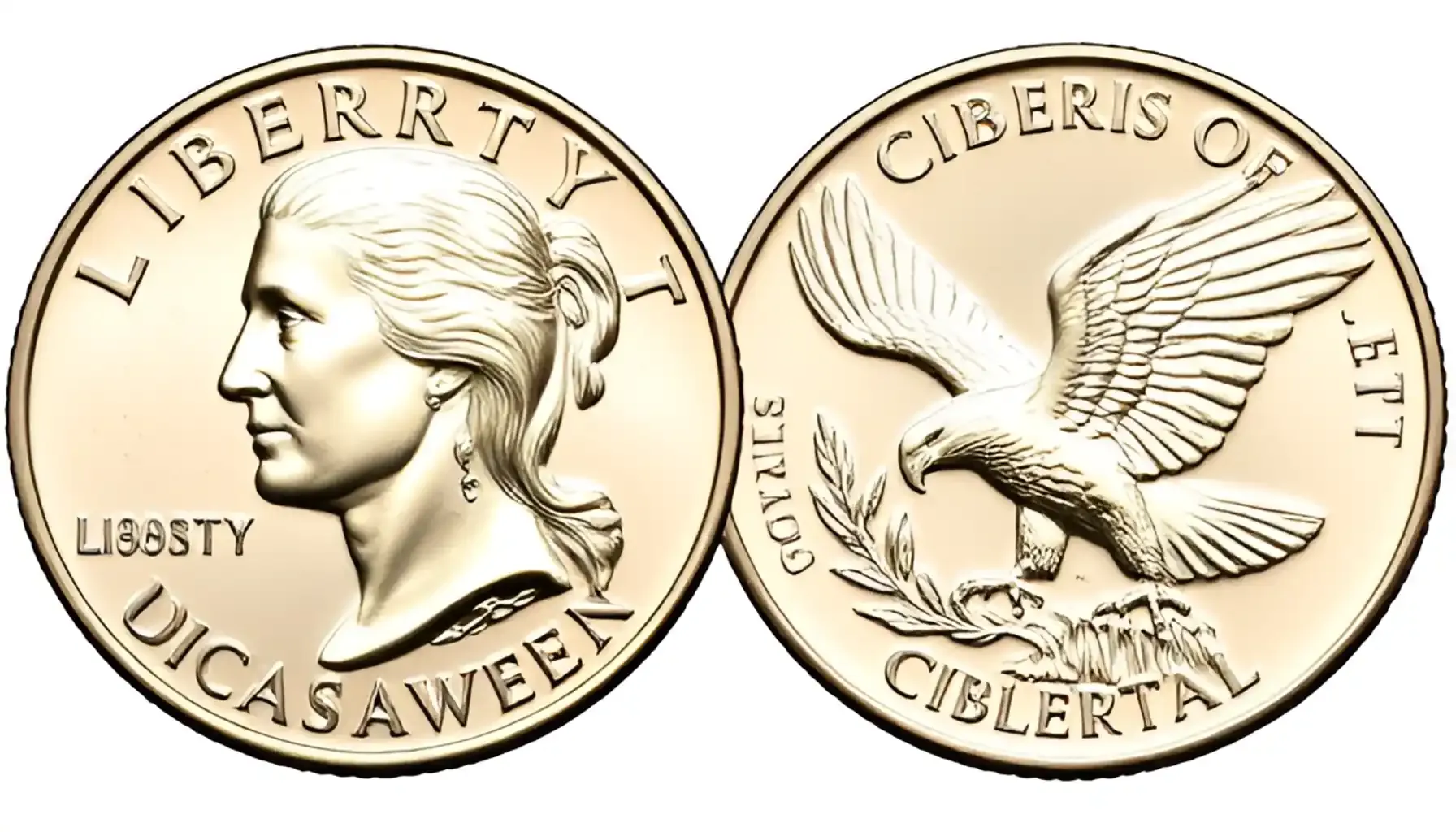
As the very first dollar issued by the US Mint in history, it is a legendary piece with an immaculate background and value that may be impressive even to professional collectors with expertise. Its design features a youthful Liberty with flowing hair on the obverse and a small eagle on the reverse, which is only supported by the limited mintages and its honorable status, too.
Draped Bust Dollar (1795–1804)
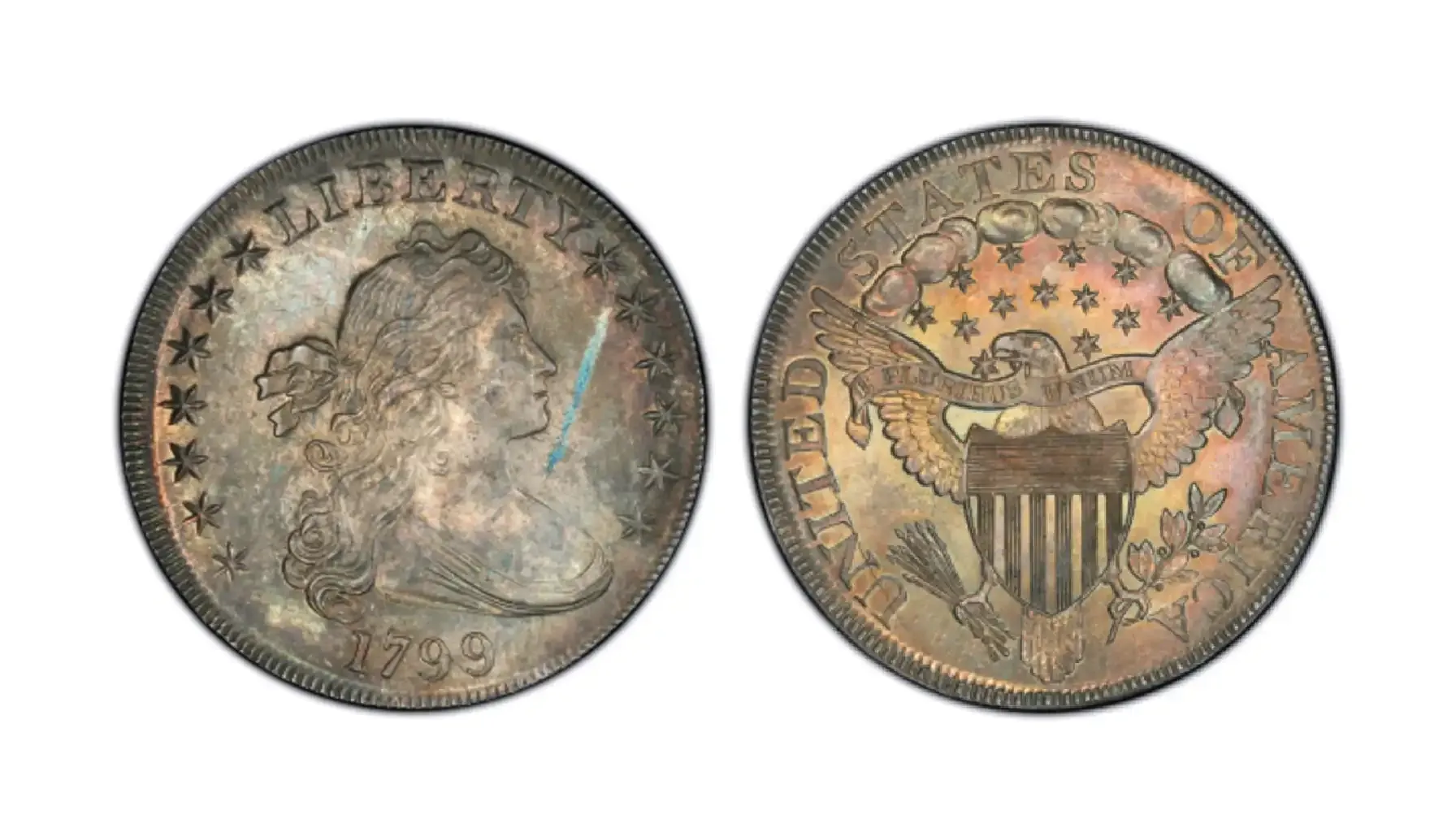
Succeeding the Flowing Hair design, the Draped Bust dollar introduced a more mature Liberty on the obverse with a heraldic eagle on the reverse side. The 1804 edition is widely known as the King of American Coins, and finding one may be a life-changing event for those who care.
Gobrecht Dollar (1836–1839)
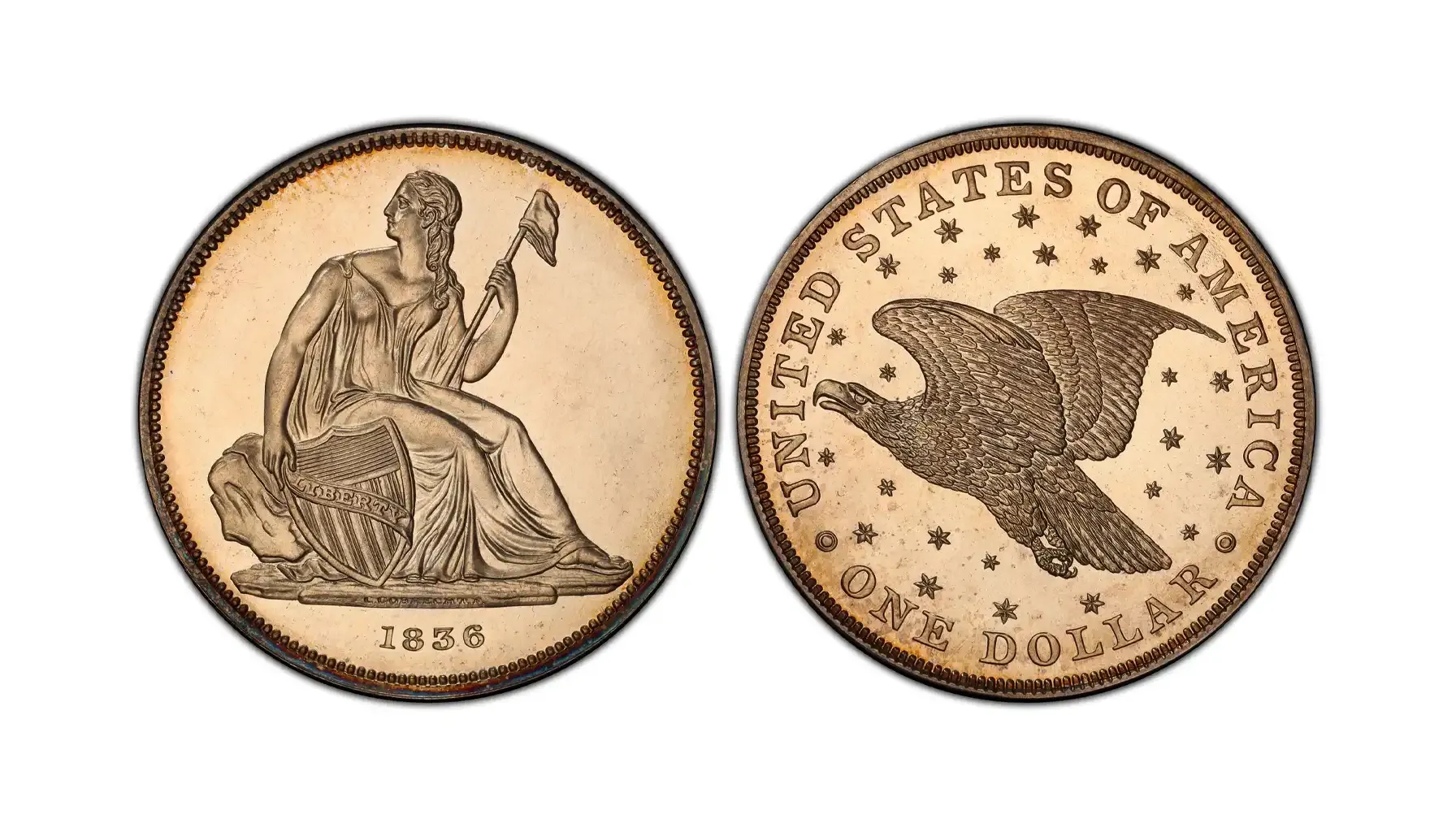
As a transitional point, we should present the Gobrecht dollars, which were minted in small numbers and primarily intended to be a pattern. As for its design, it features a seated Liberty in motion and a soaring eagle, which makes these seemingly casual units into real works of art.
Seated Liberty Dollars (1840–1873)
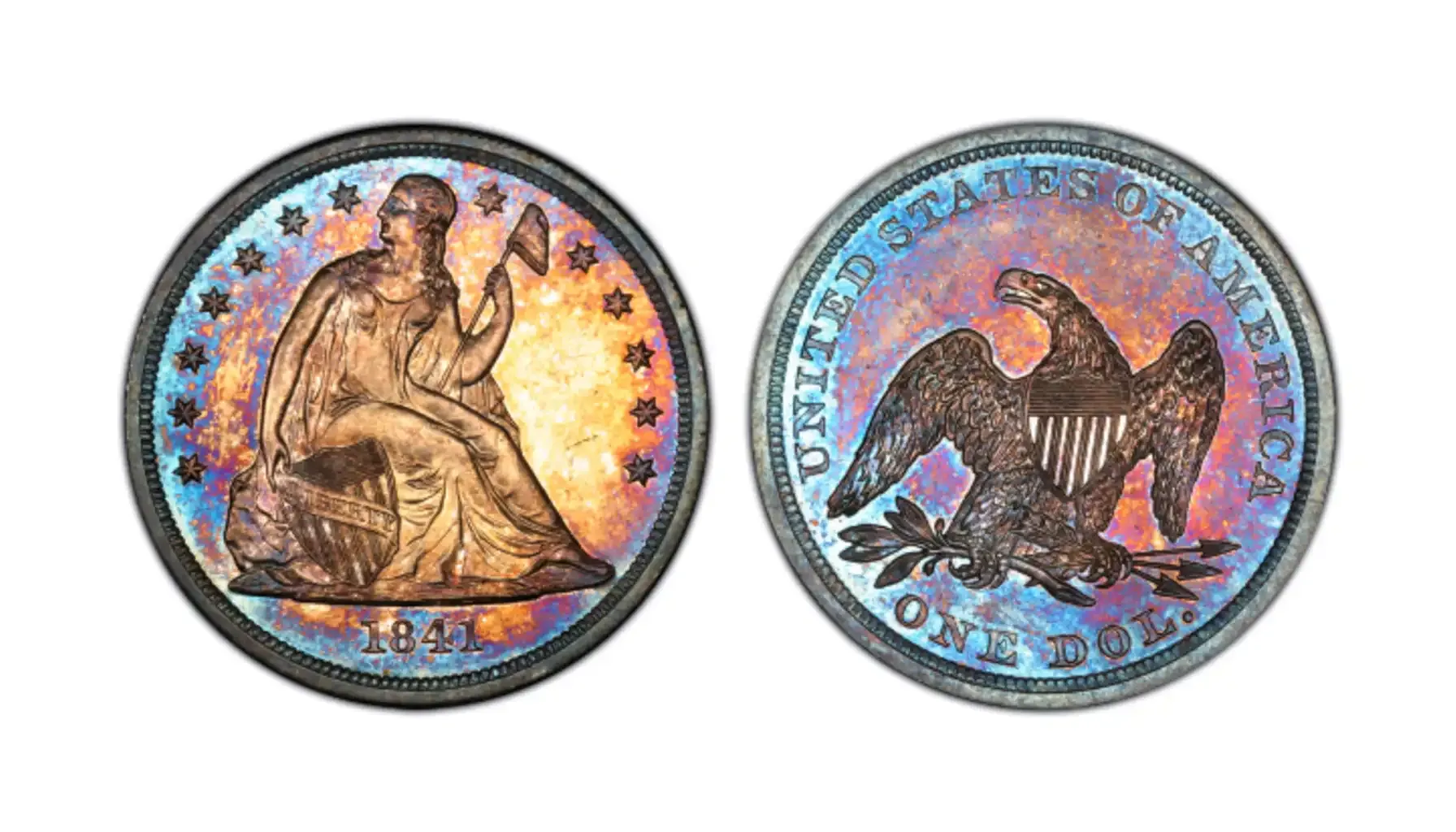
Due to their cultural significance and limited mintage, these pre-20th-century coins are now rare, and, hence, the $1 coin value is high enough to call these instances the true collectibles. As for the appearance, these feature Lady Liberty seated on a rock with a shield and staff in her hands.
Morgan Dollars (1878–1921)
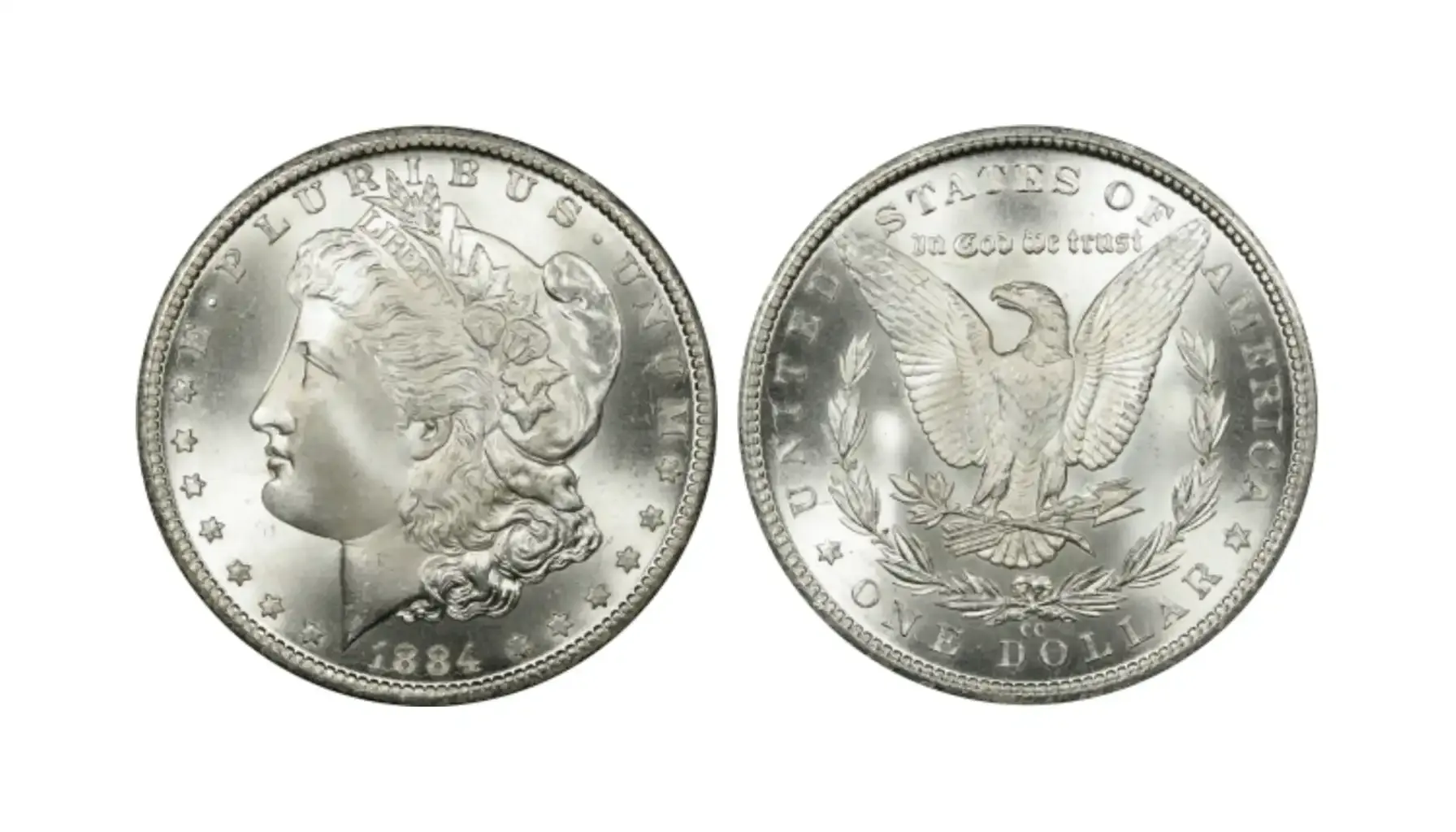
Morgan dollars represent a favorite part of this group thanks to their silver content and elaborate depiction of Lady Liberty wearing a Phrygian cap on the obverse and an eagle on the reverse side. Instances in superb condition, or rare dates like the 1893-S, can sell for thousands of dollars or more.
Peace Dollars (1921–1935)
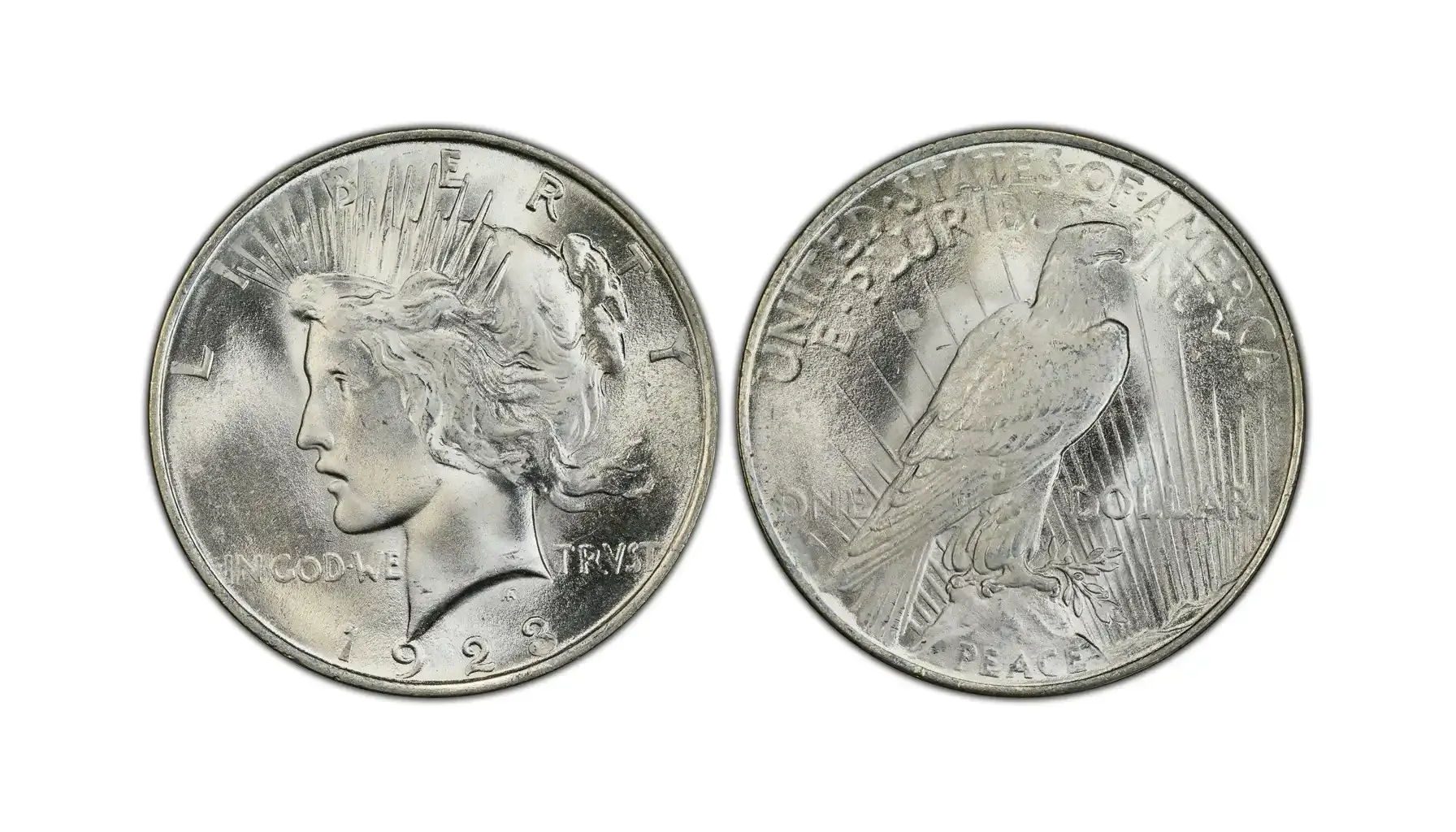
As such, peace dollars are overly collectible numismatic creations that may boast the stunning design of a serene Lady Liberty crowned with rays and an eagle on the rock, which was meant to commemorate the end of World War I. Particularly desirable are those coins from 1928 or the high-relief variant from 1921 (i.e., can be seen as the most collectible from the whole group).
Modern Coins
Minting Errors
Errors such as off-center strikes, missing edge lettering, or doubled dies are uncommon yet valuable deviations that can raise one dollar coin value for good. Among the most famous examples are presidential dollars that lack edge lettering. Even rare error quarters are worth money, just as other issues with misprints are.
Special Editions
The limited availability of coins minted as a part of special editions also affects one dollar coin worth, and instances like the 2000 "Cheerios" Sacagawea dollar (a picture of Sacagawea carrying her baby), which was distributed as part of a marketing effort, are especially preferred by collectors.
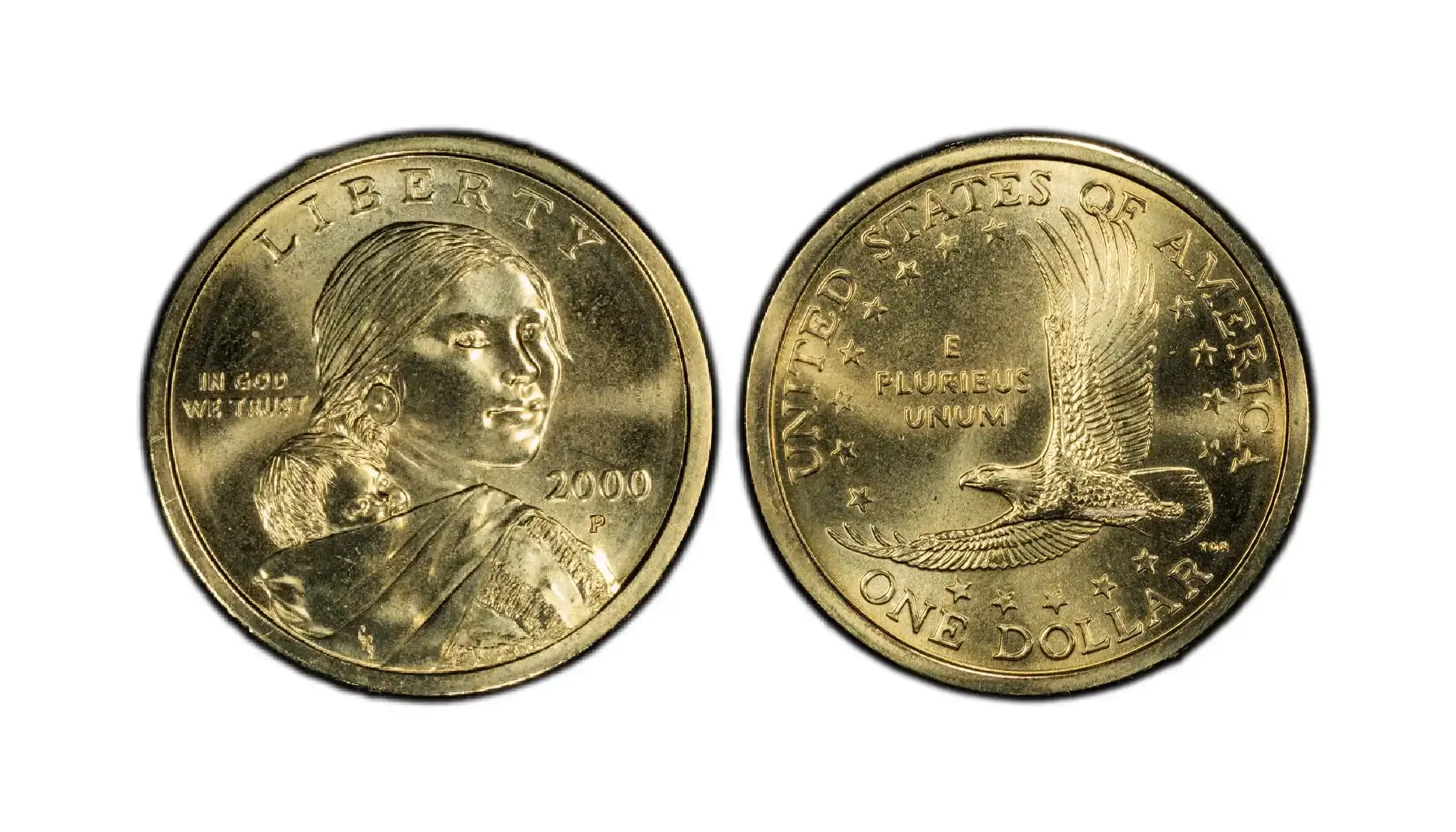
Low Mintages
As a rule, collectors tend to pay more for contemporary $1 coins with restricted production runs, like the 1979 Susan B. Anthony dollar (with this coin representing a profile of Susan B. Anthony surrounded by stars).
Proofs
What dollar coins are worth money? These are definitely proof coins. Lastly, when kept in mint condition, proofs (those instances that are made for collectors and have intentionally sharp layouts and polished finishes) can command substantially higher prices than regular circulation coins.
Top 5 Rare One Dollar Coins to Observe
1794 $1 Flowing Hair Dollar
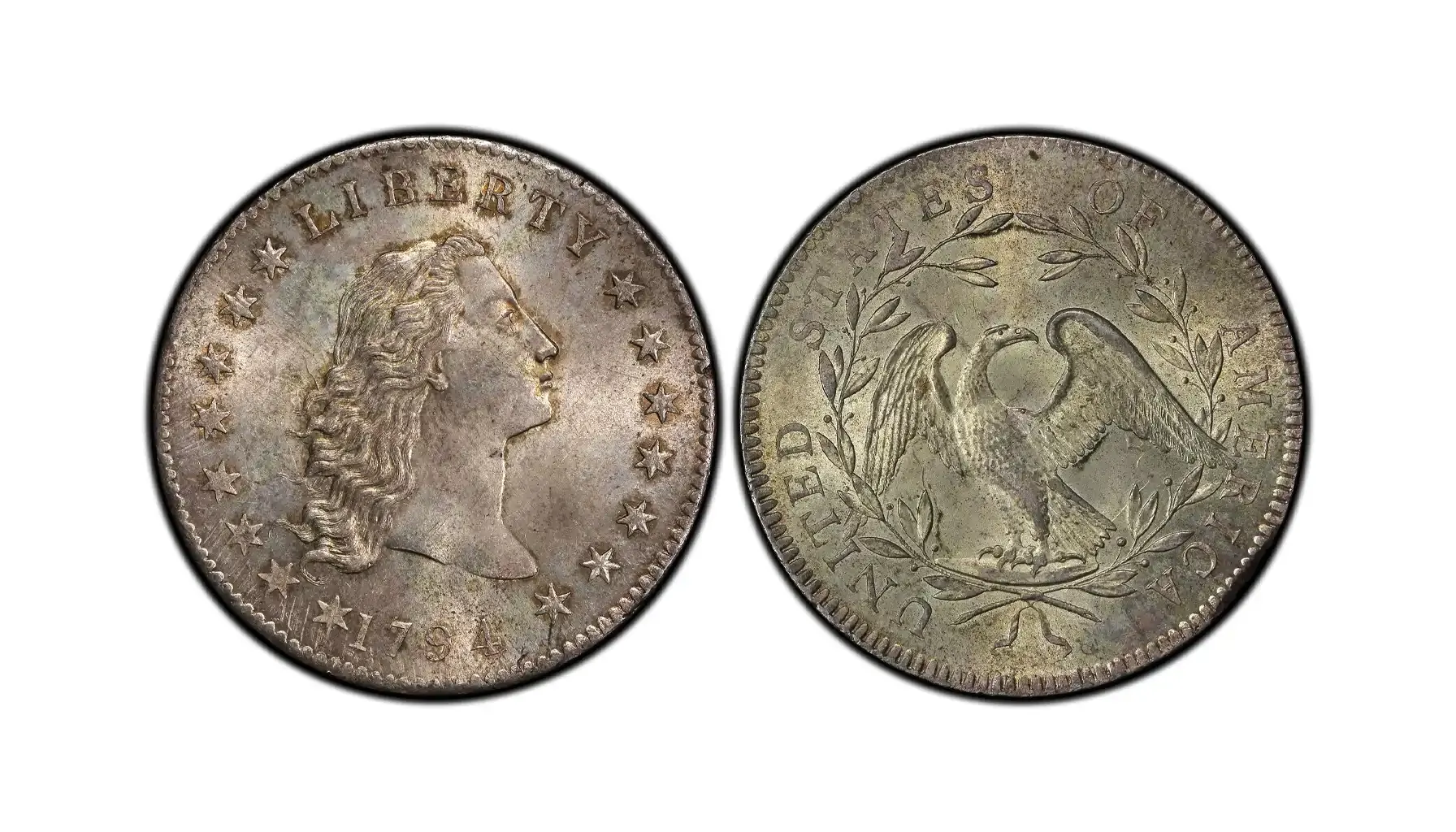
Produced by: Philadelphia Mint
Mintage: 1,758
Auction Record: $2,820,000 for MS64
As the first silver dollar ever struck by the United States Mint, the 1794 Flowing Hair dollar is THE foundation of American numismatics. Its extremely limited mintage and historical importance make it one of the most valuable coins in US history.
1804 $1 Original - Class I (Proof)
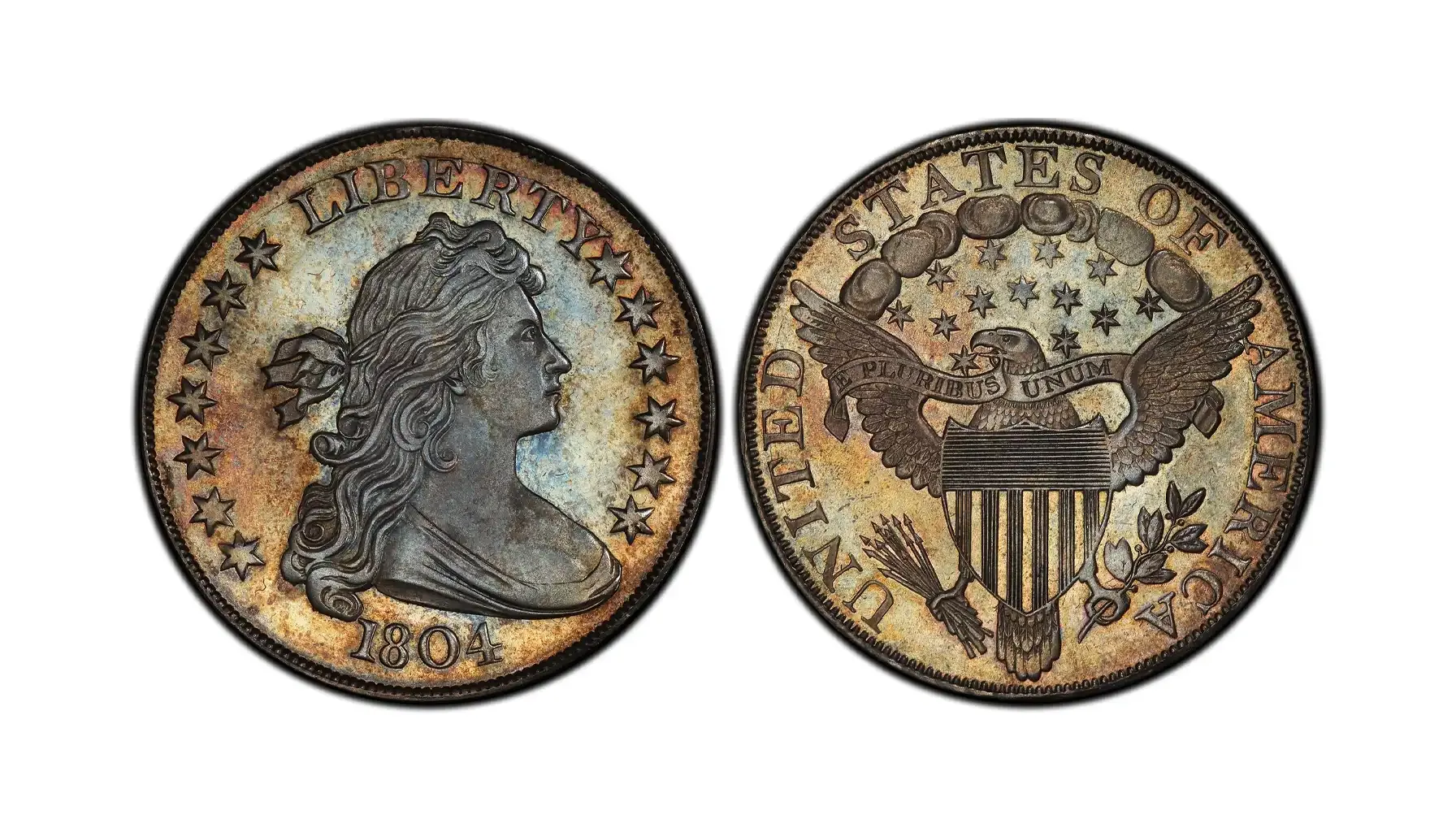
Produced by: Philadelphia Mint
Mintage: 8
Auction Record: $7,680,000 for PR68
As history knows, the 1804 1 dollar is considered "King of American Coins", but its year of mintage was not 1804 at all. In fact, it was a later issue used as a diplomatic presentation piece, with only eight original Class I proofs known to exist.
1893-S $1 Morgan Dollar
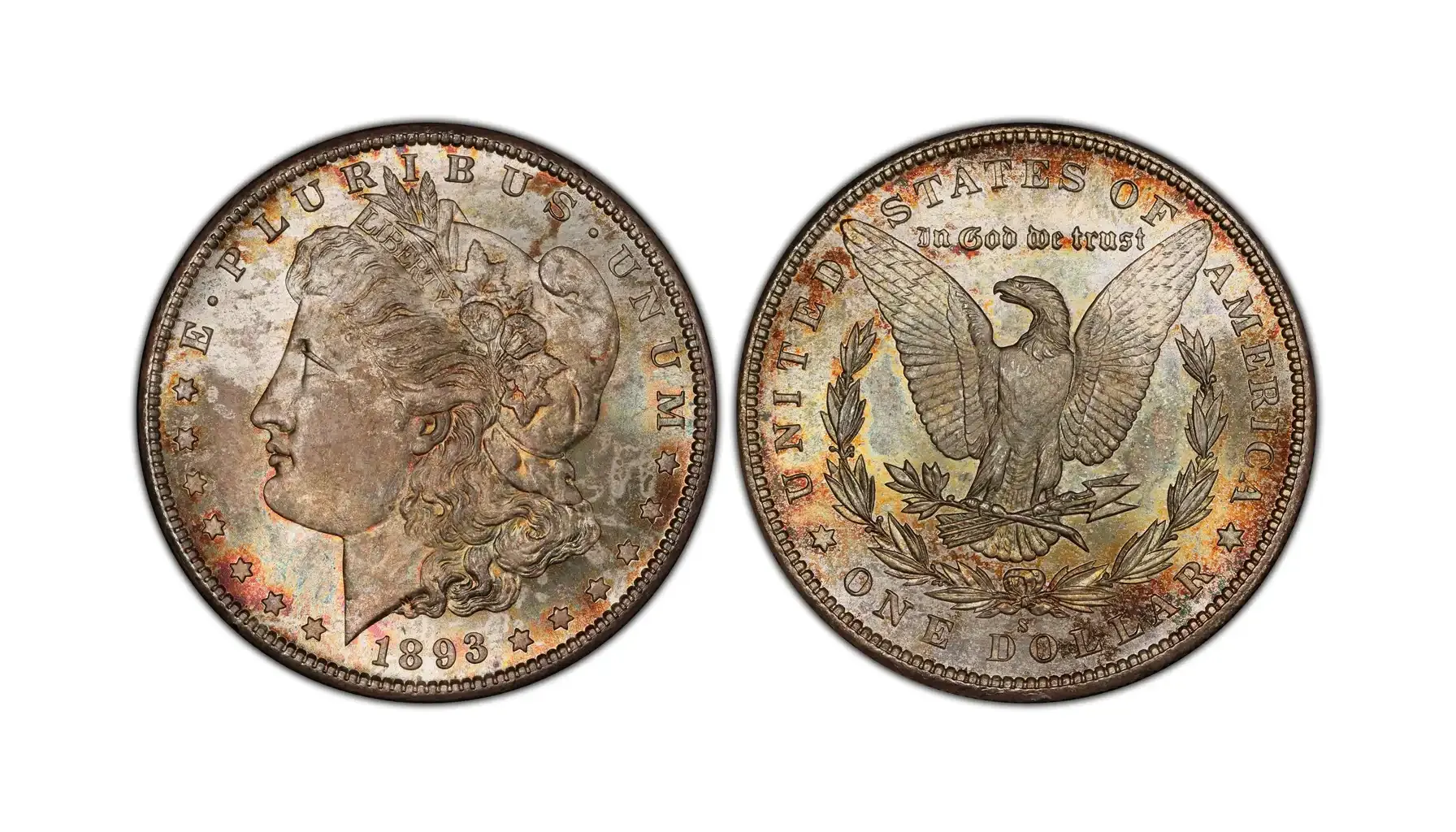
Produced by: San Francisco Mint
Mintage: 100,000
Auction Record: $735,000 for MS65
The 1893-S Morgan dollar is considered the key date in the Morgan series, thanks to its low mintage and widespread circulation, which made it almost impossible to retrieve Mint State pieces for private collections.
1921 $1 High Relief, Peace Dollar
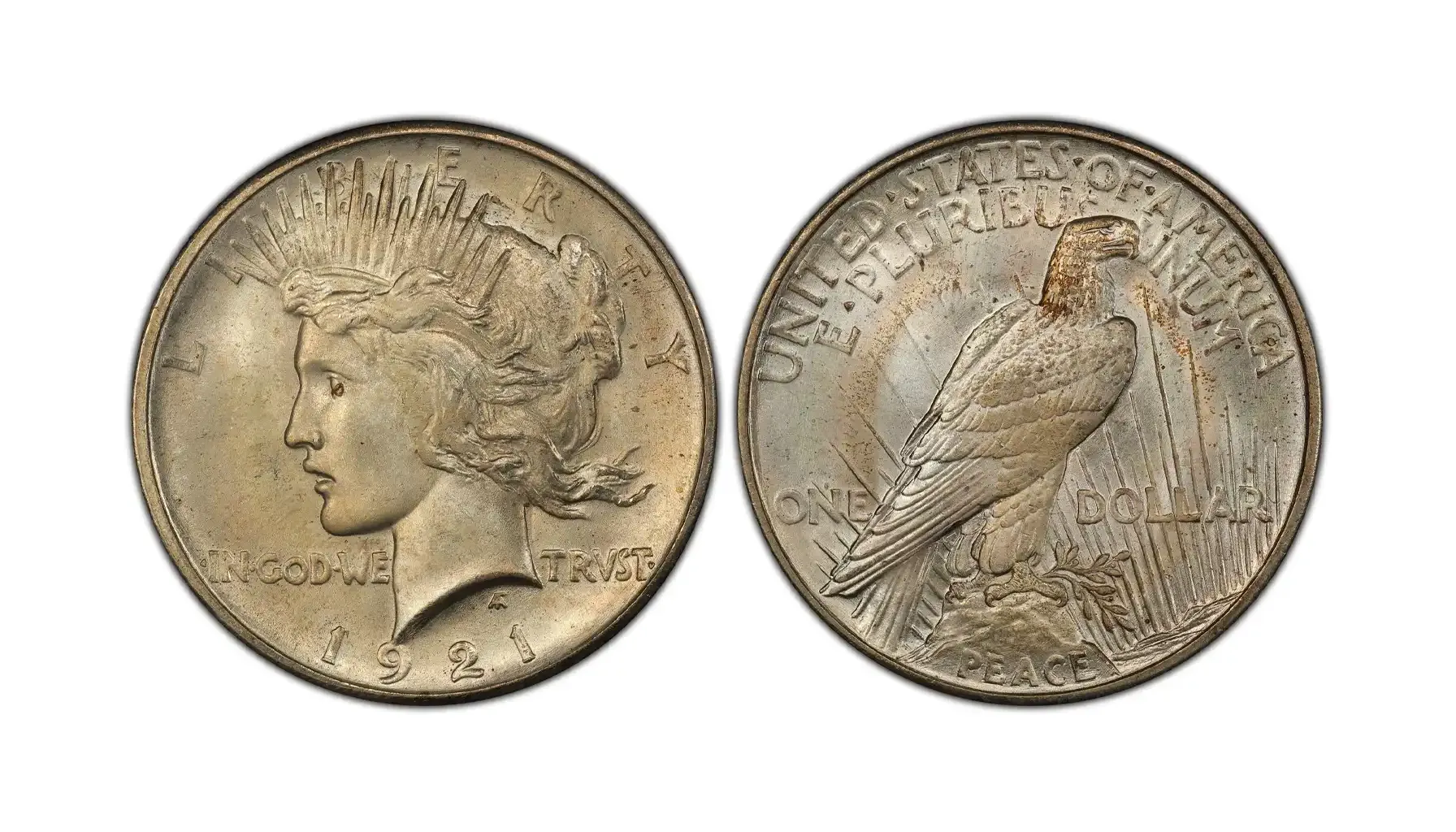
Produced by: Philadelphia Mint
Mintage: 1,006,473
Auction Record: $132,000 for MS67
When World War I ended, it was vital to bring hope to the nation. This is why the Peace dollar was released. Initially struck in high relief, it was later modified for easier production, which made the Peace dollar version from 1921 the only instance of such a design.
1972 $1 Eisenhower Dollar, Type 2
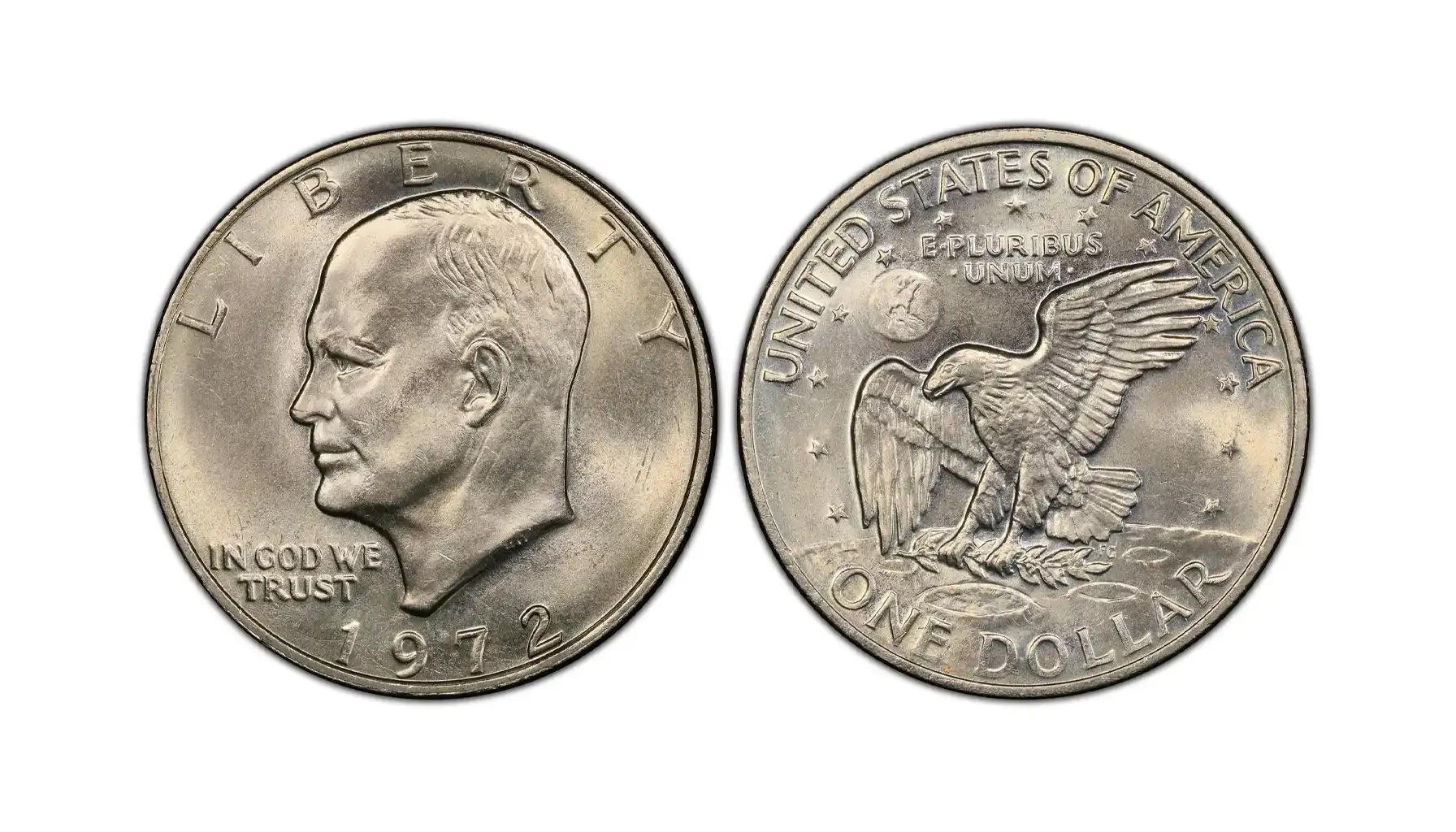
Produced by: Philadelphia Mint
Mintage: 75,890,000
Auction Record: $14,400 for MS66
Finally, here is a relatively modern creation that can still be found in circulation. Type 2 of the 1972 Eisenhower dollar is a rare variety distinguishable by a different reverse Earth design. Although differences are subtle, they still make a difference and boost the value for good.
How to Spot Valuable $1 Coins?
How much is a 1 dollar coin worth? This is the question most collectors might want to find an answer to, yet they struggle to learn how to identify worthy pieces appropriately. A sharp eye, some fundamental knowledge of dollar types, and the appropriate equipment are all needed, but following some additional steps is crucial. Here are a few tips to improve your search.
Check for Minting Errors: Carefully look for anomalies like off-center strikes, missing edge lettering, doubled dies, or odd elements that do not fit the mold. Coins with minting mistakes are frequently worth more.
Inspect Mint Marks: Find the mint mark, which is typically a little letter that indicates the location of the mint. Issues from low-mintage years or from specific mint locations, such as Carson City ("CC"), are always in great demand.
Pay Attention to Rare Dates: Some $1 coins, like the Morgan dollar from 1893 or the 2000 "Cheerios" Sacagawea dollar, were produced in limited amounts or have special historical importance. To find unusual dates, use value guides and special numismatic resources, too.
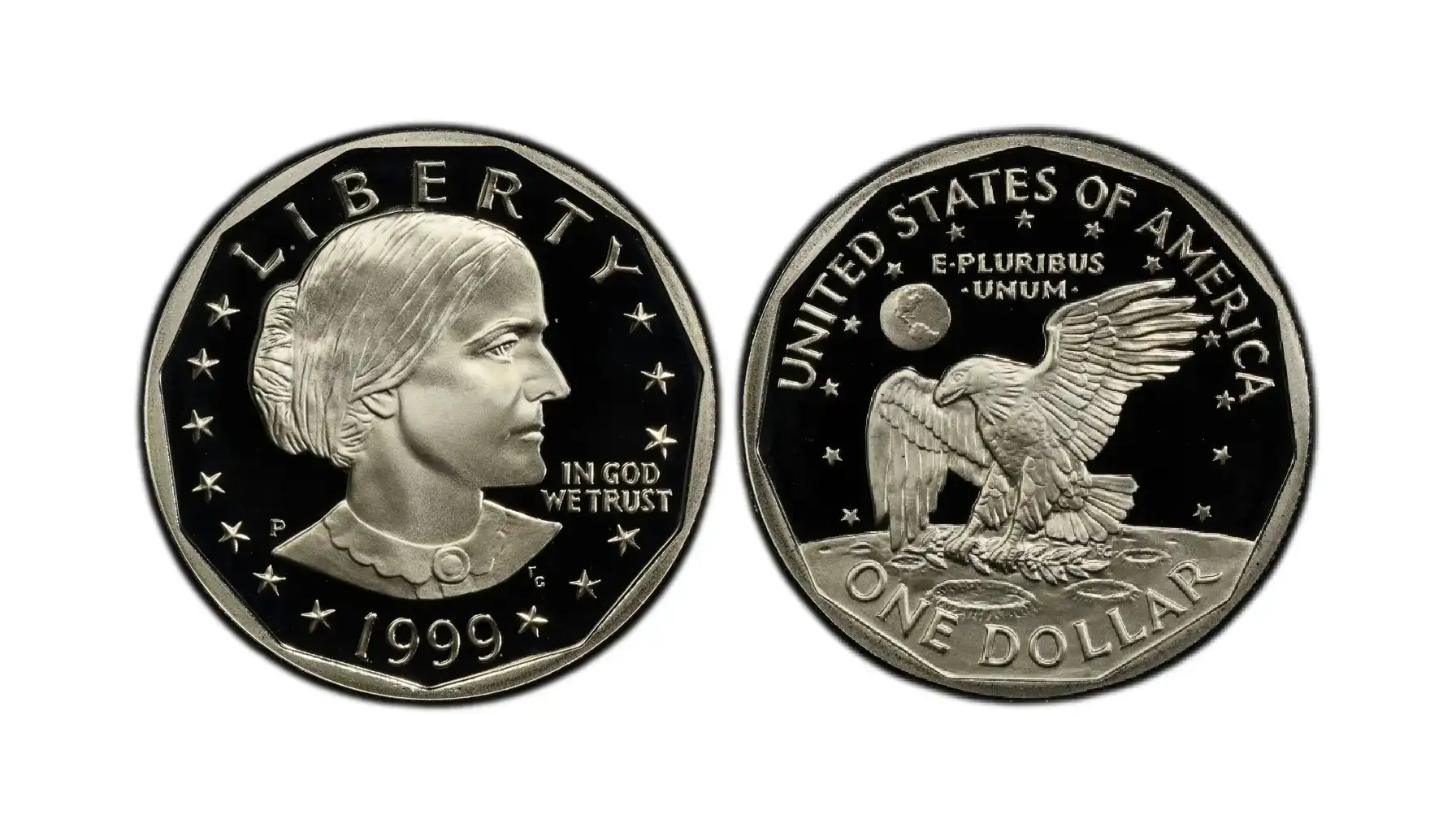
Evaluate Condition: A coin that is in exceptional condition, also referred to as "mint state" or "uncirculated," is worth a lot more than one that is worn out. Keep an eye out for crisp details, spotless surfaces, and little to no scratches at all.
Employ Additional Tools Like Coin ID Scanner: The worth of any collectible can be estimated quickly with the use of resources like Coin ID Scanner, as they may analyze data, including mint marks, dates, and distinctive features, by one photo only. Take a picture of the coins and let the system process it. As easy as that!
Market Trends and Values
Finally, how much is a $1 coin worth, e.g., the George Washington dollar coin? Indeed, the value of $1 coins fluctuates based on demand, rarity, and condition, with some coins fetching considerable premiums in today's market while others remain the same. So, what are the main trends today?
Rising Demand for Historical Coins |
Modern Coins Gaining Popularity |
Condition Drives Value |
Gold and Silver Impact |
Emergence of Online Marketplaces |
Nowadays, 1 dollar coins worth money are relatively rare and unique, and this impacts their prices in the end. Although the fares for the majority of such numismatic instances cannot exceed their face value, those coins that refer to the groups of special, exceptional items may cost a lot. So, explore the market and hunt for the instances you would really love to obtain.

